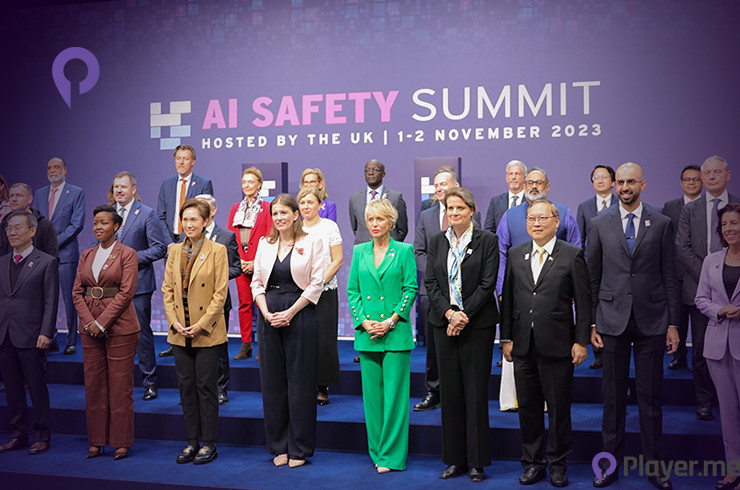Leaders from China, the United States, and the European Union have assembled at Bletchley Park, the historic site of Britain’s World War Two code-breakers, to collectively tackle the urgent challenge of AI safety. The Bletchley Declaration, signed by over 25 countries, outlines a collaborative effort to manage the risks posed by the rapid development of artificial intelligence. The summit, initiated by British Prime Minister Rishi Sunak, marks a significant step in forging a common approach to overseeing AI on a global scale.
Identifying shared risks and building scientific understanding
The Bletchley Declaration, an exemplar of lexical opulence and intricate verbosity, meticulously unfolds a dual-faceted agenda of paramount significance. Its primary thrust lies in the discerning identification of shared risks and the cultivation of scientific acumen, intricately interwoven with the formulation of cross-country policies of considerable complexity, designed with a sagacious intent to mitigate these identified risks. The articulate expression extends to the resolute commitment articulated by China’s Vice Minister of Science and Technology, Wu Zhaohui, who, with eloquence and gravity, champions Beijing’s dedication to heightened collaboration. This commitment finds its zenith in an impassioned advocacy for an international governance framework that transcends national confines, emblematic of the interconnectedness characterizing the global technological landscape.
At its core, the Bletchley Declaration, with its labyrinthine syntax, aspires to the loftiest of ideals: the unequivocal assurance that nations, regardless of size or geopolitical standing, possess an equitable entitlement to partake in the unfolding narrative of artificial intelligence’s evolution. This proclamation, adorned with lexical opulence, stands as a testament to the profound principles underpinning the quest for equity in the dynamic realm of artificial intelligence, forging a path towards a future where nations of diverse magnitudes share equal rights in shaping the trajectory of technological progress.
Frontier AI and the challenges ahead
In the overarching landscape of artificial intelligence (AI), the European Union has, hitherto, directed its primary focus towards the meticulous oversight pertaining to data privacy and surveillance. But, the British summit, in a notable departure from this predominant narrative, intricately and ambitiously delves into the expansive and nebulous terrain colloquially termed as “frontier AI.” Within the contours of this nuanced category reside highly proficient general-purpose models, possessing an inherent proclivity to engender potential existential risks of considerable magnitude and consequence.
Noteworthy is the recognition and acknowledgement by Mustafa Suleyman, a luminary in the AI domain and co-founder of Google Deepmind, who astutely observes the current dearth of overtly catastrophic harms emanating from extant AI frontier models. But, in a strategic and forward-looking stance, Suleyman fervently underscores the paramount importance of proactive planning and foresight, especially in the context of an industry increasingly engrossed in the training of progressively larger and more intricate AI models. This augurs a call to action, urging the industry’s stakeholders to adopt a strategic and anticipatory approach to circumvent potential future pitfalls as the technological landscape continues its trajectory toward ever-expanding and sophisticated AI frameworks.
A global alliance for the harmonious path of AI safety
As governments and tech companies grapple with the complexities of AI regulation, the Bletchley Park summit serves as a pivotal moment in fostering international collaboration. The commitment to collective risk assessment and policy formulation sets a precedent for addressing the challenges posed by AI on a global scale. The question that remains is whether this alliance will pave the way for a harmonized approach to AI safety or if divergent interests and geopolitical tensions will hinder progress. As the summit concludes, the world watches to see how this unprecedented collaboration unfolds in the evolving landscape of artificial intelligence.





